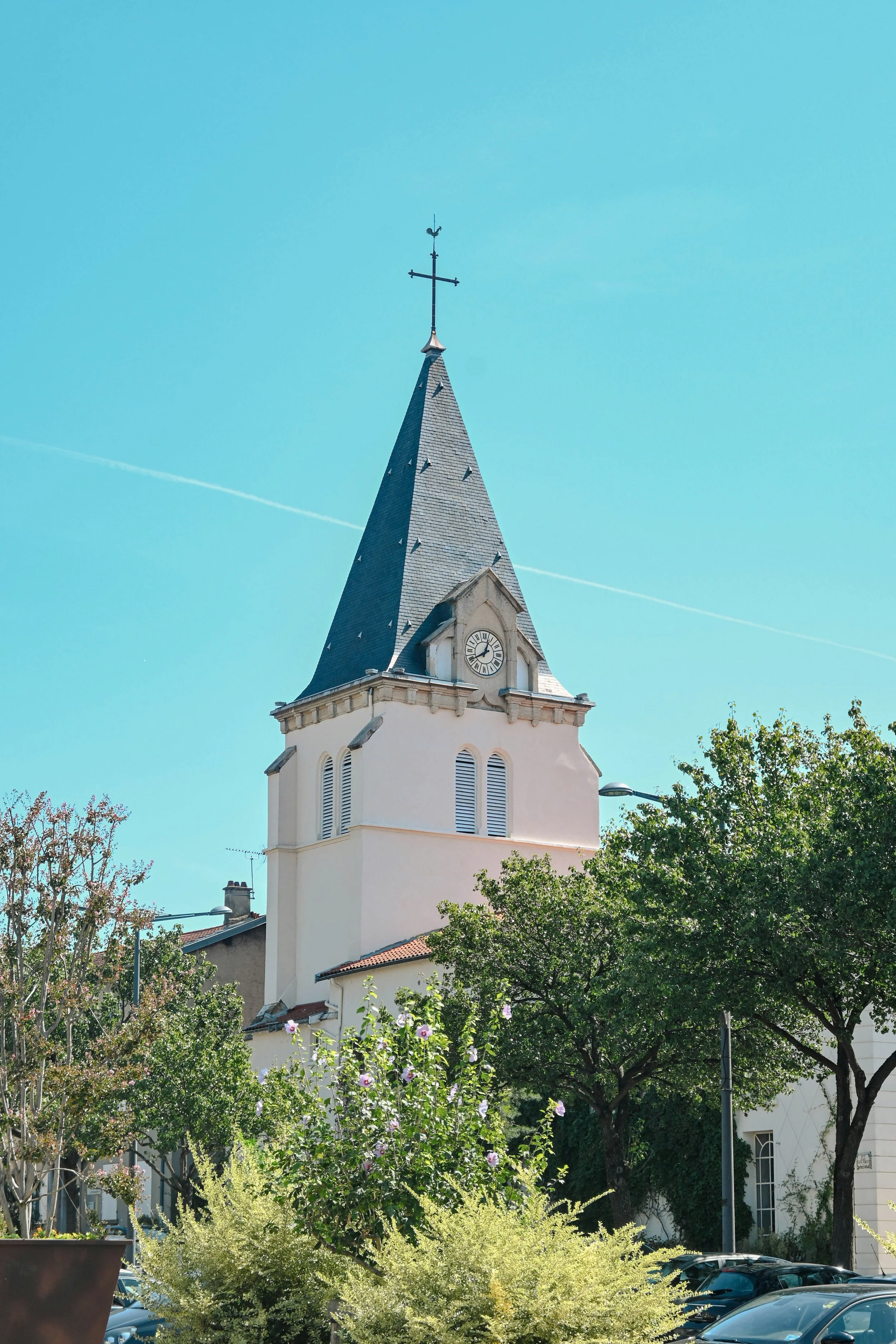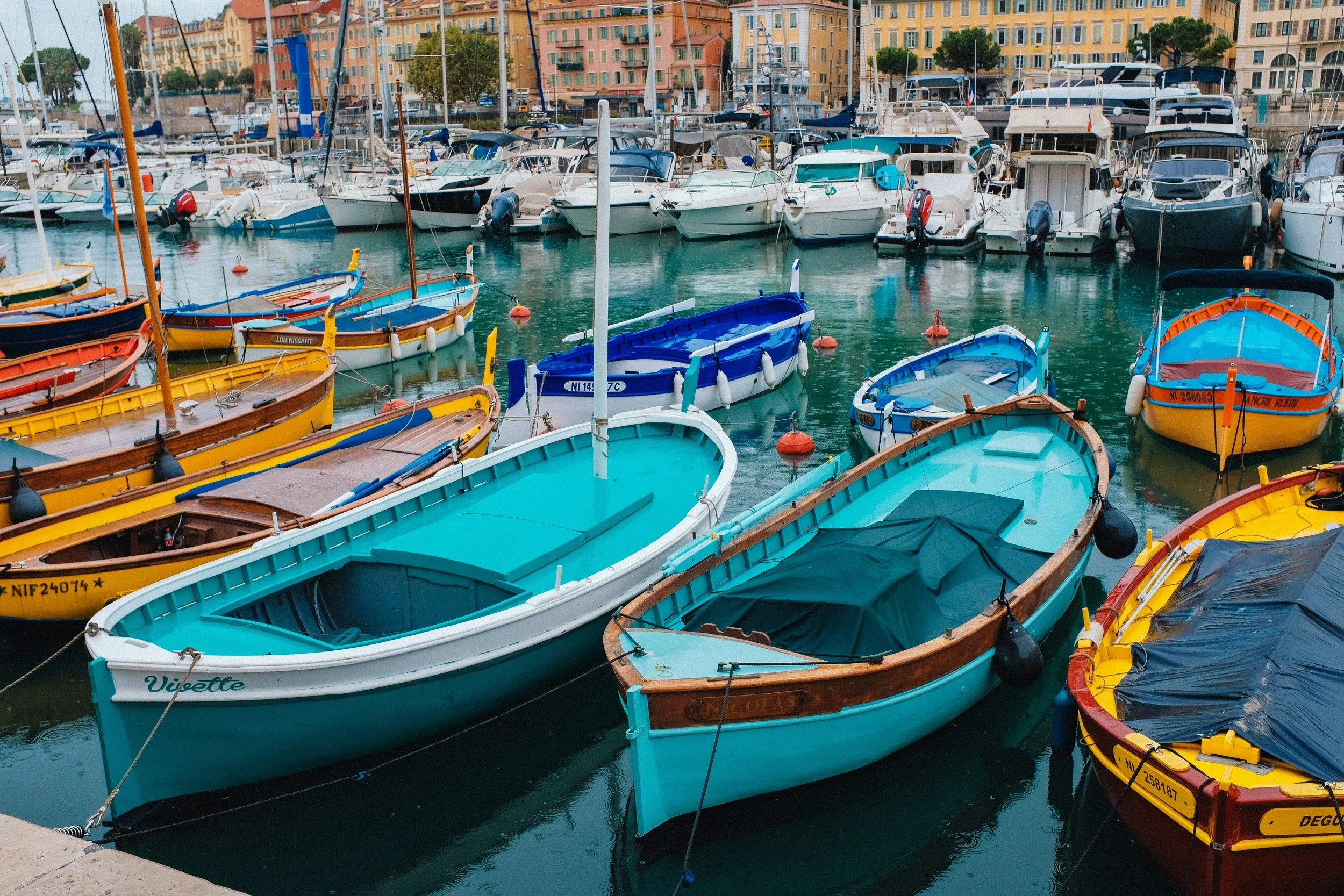The next Spiritual Climate Survey takes us to a café in Nice where a Pioneer in France meets with Pastor Pierre.
For more than three decades, Pierre P. has served as a pastor in Nice, France—nurturing a small living-room gathering into a multicultural church that reflects the diverse character of the city itself. Arriving in 1992 with his wife and young children, Pierre has witnessed firsthand the changing spiritual landscape of southern France: from the open-air evangelism of the 1990s to the challenges of secularism, immigration, and even terrorism. In this conversation, he reflects on the slow but steady work of planting a church in hard soil, the surprising opportunities hidden in times of crisis, and the hope he sees for the next generation of believers in France.
We arrived on Memorial Day, 1992. At first, we served for six months at the Free Evangelical Church. After that, we decided to try planting a church. Our very first service was on July 4, 1993—just me, my wife, and our two sons in our living room.
At first, growth was slow. Students would join for a while, but after exams they moved away, and we’d have to start over. We prayed for families, and when God brought them, that gave us a more stable base. Honestly, I’m glad I didn’t pastor in the U.S.—I might have given up because it was so slow here at the beginning. – Pastor Pierre
What was the spiritual environment in Nice when you arrived?
There was a lot of life in the student gatherings at churches. At the time, we had recently had the big Billy Graham crusade in Paris in 1986. We weren’t there but we had watched it and seen its effects.
There was also a pastoral group that was quite active and even did street outreach. I could preach in the street and actually gather a crowd—something that feels almost impossible today. I felt like that was ‘rockets to the moon’, finally you are doing your thing. You are preaching in the street and I thought this is what I want to do, but it took quite a bit of time and preparation so we didn’t do that very often. We were also invited into the university to sing and share at meal times for a while.
“There is a difference between doing outreaches and seeing people touched by the Lord in a deep way. Pretty soon, it was obvious that young people respond to music and things like that but once you try to share the Gospel,” they are gone. So at the time, I think I felt the ground was fertile but different.”
Islam was very quiet then, and there wasn’t much public Ramadan celebration. The churches were varied—traditional, charismatic, and very charismatic. The ground was spiritually fertile, but also hard because of materialism.
What are the demographics of the church in Nice?
Nice has always been diverse and cosmopolitan, but people rarely settle here long-term. Even back when I arrived, you’d meet people from all over France and Europe. Immigration wasn’t as high as today, but the city already had a mix of cultures.
How would you describe the health of the local church in Nice?
There were many different kinds of churches when we first arrived, as there still are. At that time, there was often division between charismatic and non-charismatic groups, but thankfully that’s softened. Today, there seems to be more respect among the groups and knowledge of who the real enemy is.
How do the local churches function in relationship to each other? Do they work together?
I think people respect one another but there is not much of a draw to make common projects. When I first arrived, there were annual activities organized between the churches. They’d bring in music group and organize city-wide services. Two pastors in particular (from the Assemblies of God and Salvation Army) had vision for collaboration. We have done projects with Catholics too. That movement has slowed down in recent years as churches focus more on their own projects and people get discouraged when they don’t see immediate results.
What geopolitical events have shaped the church in recent decades?
Immigration and Muslim–French tension have been challenges, but we see them as opportunities. There are people from those groups who are open to the Gospel. God has brought the nations to Nice—we can reach the world without leaving our city.
The 2016 terrorist attack shocked everyone, but it had a surprisingly positive impact on the church. The tragedy opened doors for conversations with neighbors rather than dividing people.
COVID-19 was a unique season. Unlike in the U.S., there wasn’t as much division. Overnight, every pastor became a televangelist! Zoom services actually built community—people shared their lives more openly than they often do on Sundays. You knew more about what was going on in people’s lives than on a usual Sunday at church.
Who is most open to the gospel today?
Suffering people are usually the most open. Younger people are also more receptive because they’re not set in their ways. It’s hard to admit your ladder has been leaning against the wrong wall when you are 50 or 60. Older people can come to faith, but it’s rare.
Tell us about the demographics of your church today.
We’ve always wanted our church to be for everyone—not just one ethnic group. Even when we were only 25 people, we represented 12 nationalities. We’ve had Spanish, French, Italian, German, African, and British members, among others.
We also held annual meals where everyone brought a dish from their culture. I love that the church breaks down barriers—you can become close friends with someone who, outside church, you might never even talk to. That’s biblical.
What are some of the biggest needs in Nice?
Hospitality is difficult here. Homes are small, unlike in the U.S., where people often have space to host guests long-term. It limits how we can help, though we sometimes find solutions through hotels or financial support.
How has the global church supported you?
The most valuable help has been people—workers who came, stayed, and served. Outreach teams also made an impact. Money is useful, but the real need is for workers. Jesus told us to pray for laborers in the harvest.
After this the Lord appointed seventy-two others and sent them on ahead of him, two by two, into every town and place where he himself was about to go. And he said to them, “The harvest is plentiful, but the laborers are few. Therefore pray earnestly to the Lord of the harvest to send out laborers into his harvest. – Luke 10:1–2
We’ve also been strengthened by Calvary Chapel’s network in Europe. Those relationships with like-minded believers have been a lifeline as we are able to share our joys and our heartbreaks.
How have ministry patterns varied in France?
In Eastern Europe after the fall of communism, you could sing in English on the street and people would flock to you. Here in France, people walked right past—sometimes literally stepping over guitar cases. Christianity here is often seen as something from the past. People are not interested.
But even small fruit is encouraging. If a few people grow strong in their faith, that’s worth it.
How would you describe the French mentality toward faith?
The French are proud. They think their social system is the best, and many believe if Christianity really worked, France would already know—it’s the land of cathedrals, after all.
Many make fun of American-style faith. Before COVID, there was also great trust in science, often seen as opposed to faith. But personal stories are powerful. I often share the analogy of twins in the womb debating whether there’s life after birth—it gets people thinking.
“I was teaching on the parables of the lost treasure and the pearl of great price. I get upset with the common interpretation that we are the one finding the treasure in Jesus and we are the one that gives everything. It is not totally wrong… True, we should give up everything for him… but in that passage, the field is the world. Who can give the world? It’s Jesus who gave the world to gain us, to gain the church. He went to the cross. I’m not saying the other interpretation is totally wrong… You know, we are to give everything we have to follow Jesus. But what that message is saying is so powerful that you know Jesus is the one who finds you, you’re the treasure. This is not something accessory to the parable when you see how little value life seems to have in some parts of France.”
At the heart of it, the gospel is powerful. Jesus finds us. We are his treasure. That message is desperately needed in this culture where life often feels devalued.
Thank you to Pastor Pierre and the local Pioneers for taking the time to share this conversation. Let’s join Pastor Pierre and Pioneers in France in prayer as they seek to show French people how valued they are by the Father. Here are some other ways we can join them in prayer:
Pray for more young people to consider full-time ministry for their lives.
Pray for deeper dependence on the Lord, not just on resources.
Pray for people to walk with the church in prayer, for ongoing relationships between churches and missionaries, so the work isn’t isolated.
In this series, we have sought the opinions of local brothers and sisters to help us gain understanding of the spiritual context that surrounds us here in Europe. The views expressed belong to those being interviewed and as such do not necessarily represent any official stance of Pioneers in Europe. Please join us in seeking to better understand the experiences of others and respond in prayer to our heavenly Father who sees and understands all things clearly. These interviews have been translated and abbreviated for this format. Reach out to info@pioneersineurope.com if you would like a copy of the original interview.




